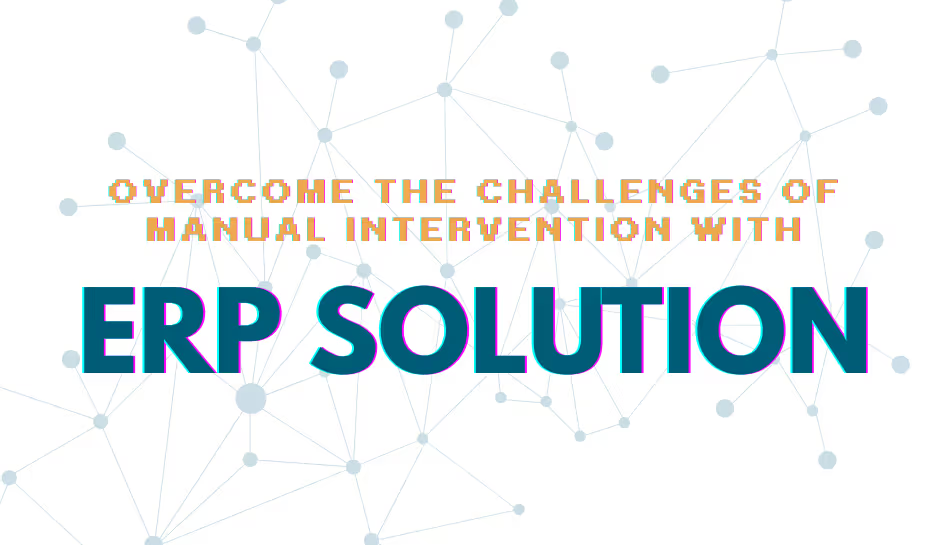Running a business comes with countless moving parts, from managing inventory and payroll to processing customer orders and maintaining compliance. When these tasks are handled manually, inefficiencies pile up quickly. Paper-based processes, duplicate entries, and human errors slow down growth and affect profitability. This is where ERP solutions for business efficiency make a big difference.
By shifting from manual intervention to an integrated system, businesses can unlock productivity, accuracy, and scalability. Let’s explore how ERP helps in overcoming inefficiencies and why more organizations are turning to this technology.
The Pitfalls of Manual Intervention
Manual processes might work for small teams in the early stages, but as a business grows, they create significant challenges:
- High Error Rates: Without automation, mistakes in data entry or reporting are common.
- Time-Consuming Workflows: Employees spend hours on repetitive tasks that could be automated.
- Lack of Visibility: Important data is scattered across files and spreadsheets, making it difficult to get real-time insights.
- Limited Scalability: Expanding operations requires more manpower instead of smarter systems.
All these issues highlight the need for ERP for eliminating manual errors and streamlining daily operations.
Benefits of ERP in Business Automation
An Enterprise Resource Planning (ERP) system integrates different business functions into one platform, reducing the need for separate tools. The benefits of ERP in business automation are vast:
- Accuracy and Reliability
Automated data entry ensures consistency and eliminates human errors. This is especially critical in finance, payroll, and inventory management. - Time Savings
ERP reduces repetitive work by automating invoicing, order tracking, reporting, and approvals. Teams can then focus on strategic tasks instead of clerical work. - Real-Time Insights
With centralized data, businesses get instant access to dashboards and reports, improving decision-making. - Improved Compliance
ERP systems track transactions and provide audit trails, ensuring businesses remain compliant with tax laws and industry regulations. - Scalability
ERP grows with your business. Whether you expand to new markets or add more products, the system adapts without needing additional manual oversight.
ERP for Streamlining Business Operations
One of the biggest advantages of ERP is its ability to integrate various business processes into a smooth workflow. For example:
- Sales and Finance Integration: When a sale is recorded, the financial system updates automatically, reducing manual entries.
- Inventory Management: Stock levels are updated in real time, preventing overstocking or shortages.
- Human Resources: Payroll and leave management are automated, cutting down on repetitive HR tasks.
- Customer Service: ERP gives teams quick access to order histories and billing details, improving client satisfaction.
This shows the true power of ERP for streamlining business operations.
Overcoming Inefficiencies with ERP Software
Businesses that continue relying on manual systems often face slow growth and missed opportunities. By contrast, overcoming inefficiencies with ERP software ensures:
- Fewer delays in operations.
- Lower operating costs through automation.
- Improved collaboration across departments.
- Higher accuracy in forecasts and planning.
A good ERP solution doesn’t just automate tasks, it transforms the way businesses function by unifying people, processes, and data.
Final Thoughts
In today’s fast-moving markets, manual intervention holds businesses back. Errors, delays, and inefficiencies cost both time and money. Adopting ERP is no longer just an option but a necessity for growth. With the benefits of ERP in business automation, organizations can eliminate manual errors, streamline operations, and achieve new levels of efficiency.
The future belongs to businesses that embrace ERP solutions for business efficiency and use technology to power smarter decision-making. By leaving behind outdated manual practices, companies can focus on innovation, scalability, and customer satisfaction.



